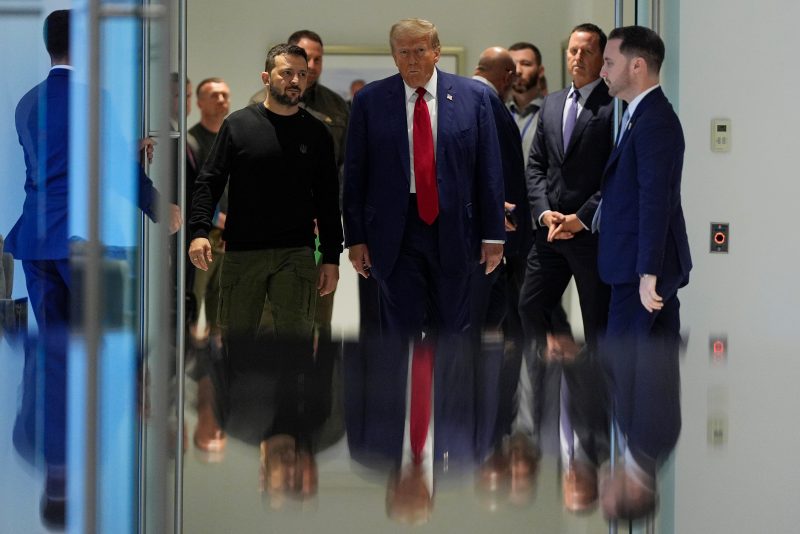
Trump Blames Zelensky for Starting Ukraine War: What Should Have Been Done Differently
In a recent statement, former US President Donald Trump expressed his opinion on the conflict between Ukraine and Russia, criticizing Ukrainian President Volodymyr Zelensky for allegedly failing to prevent the war from escalating. Trump’s remarks have generated mixed reactions, with some agreeing with his assessment while others condemning his perspective. This situation raises questions about the complexities of international relations and the challenges faced by leaders in navigating geopolitical conflicts.
It is notable that Trump’s commentary on the Ukraine-Russia conflict comes against the backdrop of his own controversial foreign policy decisions during his presidency. His administration’s approach to diplomacy was characterized by an America First stance, emphasizing prioritizing national interests over global concerns. Given this context, Trump’s critique of Zelensky’s handling of the conflict may be viewed as consistent with his broader views on foreign affairs.
However, it is essential to consider the broader context of the situation in Ukraine. The conflict in the region has deep historical roots and complex geopolitical dynamics involving not only Ukraine and Russia but also other regional and international actors. Blaming Zelensky alone for the outbreak and escalation of the conflict oversimplifies a multifaceted issue that has been ongoing for years.
Moreover, it is crucial to acknowledge the agency and autonomy of sovereign states in managing their own affairs, including handling conflicts within their borders. While international support and diplomatic interventions can be valuable in resolving conflicts, expecting one leader to single-handedly prevent the outbreak of war may not fully capture the intricate interplay of factors that contribute to such situations.
In light of these considerations, Trump’s criticism of Zelensky’s role in the Ukraine-Russia conflict should be scrutinized with a nuanced understanding of the complexities involved. While constructive dialogue and differing perspectives are essential in addressing global challenges, it is imperative to avoid oversimplifications and recognize the multifaceted nature of international conflicts.
The ongoing conflict in Ukraine serves as a stark reminder of the fragility of peace and the importance of diplomatic efforts in resolving disputes. As the international community grapples with the repercussions of conflicts like the one in Ukraine, it is vital for leaders and policymakers to engage in constructive dialogue, prioritize peaceful resolutions, and work towards fostering stability and cooperation in the global arena.
In conclusion, while Trump’s comments on the Ukraine-Russia conflict may spark debate and reflection on the complexities of international relations, it is essential to approach such discussions with a critical and nuanced perspective. By recognizing the multifaceted nature of conflicts and the challenges faced by leaders in navigating geopolitical dynamics, we can strive towards a more informed and constructive approach to addressing global challenges and promoting peace and stability.
